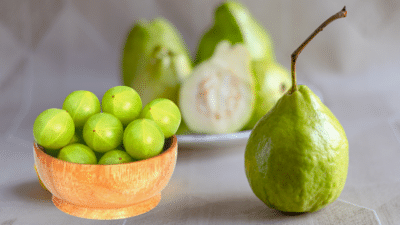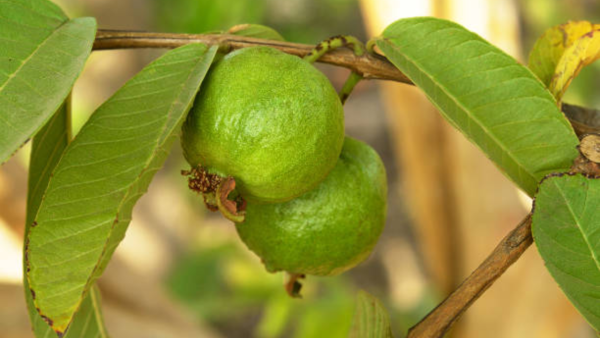
When it comes to superfoods in the winter season, guava and amla steal the spotlight. Both are packed with nutrients and have been a part of traditional remedies for ages. But if someone had to choose one, which would be the healthier option? Here are the differences between these two fruits, their nutritional value, effects on the body, and see which one deserves the crown.
What’s in Guava and Amla?
Guava is rich in vitamin C, fibre, and antioxidants. A single guava can provide over 200% of your daily vitamin C requirement! It’s also loaded with potassium, which helps maintain a healthy heart.
Amla, on the other hand, is a vitamin C too—100 grams of amla can give you 600-700 mg of vitamin C, but you don't need to have 100 grams of Amla at once. In addition, amla contains iron, calcium, and powerful antioxidants like tannins and flavonoids, which are great for detoxifying your body.
Both fruits excel in vitamin C content, but amla slightly edges out guava due to its higher antioxidant levels.

Effects on immunity and overall health
Both guava and amla work wonders for your immune system. Guava’s high vitamin C content boosts your immunity, protects your cells from damage, and promotes collagen production for healthy skin.
Amla not only strengthens immunity but also acts as a natural detoxifier. It helps flush out toxins, supports liver function, and is known to improve digestion. Plus, amla’s anti-inflammatory properties make it beneficial for managing chronic conditions like arthritis and diabetes.
As per the
Department of Forests and wildlife, government of Delhi, Amla is a good source of Vitamin C, alleviates common cold symptoms, improves digestion and overall immunity.
Amla’s detoxifying and anti-inflammatory properties give it a slight advantage in overall health benefits.

Digestion: Which fruit wins here?
Guava is a fiber-rich fruit that promotes healthy digestion and prevents constipation. It’s especially good for maintaining a healthy gut microbiome. The seeds of guava, if consumed, also act as a mild laxative.
Amla, on the other hand, is famous for soothing the digestive system. It helps with acidity, regulates bowel movements, and promotes the production of digestive enzymes. Amla is also widely used in Ayurvedic remedies for treating indigestion and bloating.
While guava improves gut health with fiber, amla shines for its ability to soothe and regulate the digestive system.
Impact on blood sugar and heart health
Guava is a diabetic-friendly fruit because it has a low glycemic index and is high in fiber, which slows down sugar absorption in the blood. It’s also excellent for heart health, thanks to its potassium and magnesium content.
As per a
study done in 2016, Guava fruit without peel is more effective in lowering blood sugar
Amla is a wonder fruit for managing blood sugar. It helps improve insulin sensitivity and reduces blood sugar spikes. Additionally, its antioxidants and vitamin C content strengthen blood vessels and improve cholesterol levels.
Both fruits are heart-healthy and diabetic-friendly, but amla has added benefits for cholesterol management.


